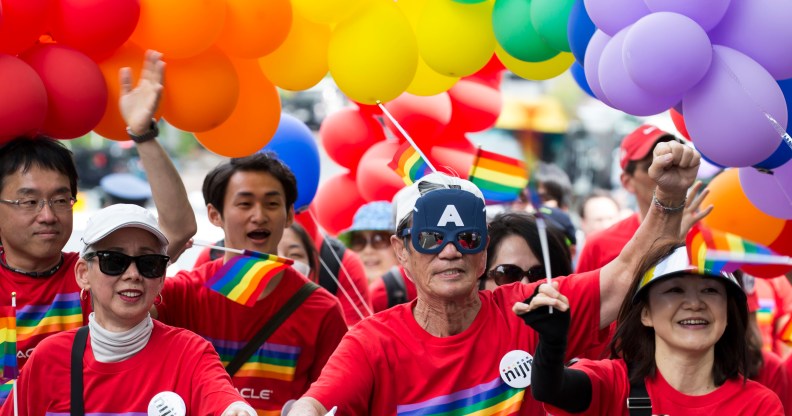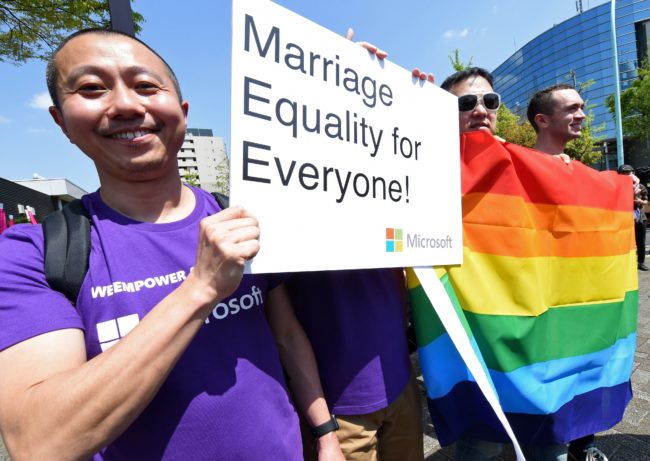Japan cancels deportation of gay Taiwanese man

TOKYO, JAPAN – MAY 06: Attendees take part in the Tokyo Rainbow Pride Parade on May 6, 2018 in Tokyo, Japan. The LGBT community and supporters marched down Shibuya and Harajuku areas on the final day of the Tokyo Rainbow Pride 2018 event. (Photo by Tomohiro Ohsumi/Getty Images)
Japan has cancelled plans to deport a gay Taiwanese man in a long-term relationship.
Lawyers representing the man told local media the move represents progress towards legal protection for same-sex couples in the country.
One lawyer said: “It’s the first time special permission to stay in the country has been given to a foreign gay partner of a Japanese citizen.”
The ministry has denied its decision was based on the man’s sexuality.
The Taiwanese man, in his 40s, has lived in the country for around 25 years with his Japanese partner, according to Japanese broadcaster NHK.
He came to Japan on a one-year student visa in 1992 and reentered the country in 1993 to prepare for a language test, shortly after which he started a relationship with his partner, his defence lawyers said.
In June 2016, his illegal residency was discovered and deportation was ordered.
The next year, the man filed a petition with the Tokyo District Court to revoke the deportation.

Participants hold placards and banners during the Tokyo Rainbow Pride 2015 parade (TORU YAMANAKA/AFP/Getty Images)
“If we could have married legally, our lives could have changed,” he told local media Friday, according to the Tokyo Shimbun.
LGBT+ rights in Japan
Same-sex marriage is not legally recognised in Japan but the government has gradually increased rights for its lesbian, gay, bisexual and transgender citizens in recent years.
Earlier this year, the Japanese city of Chiba gave official recognition to same-sex couples.
The city issued certificates to four same-sex couples in January, according to Japanese newspaper The Mainichi.
The documents will allow the partners to access many of the rights enjoyed by married people, like being able to apply for public housing as a couple and visit their loved ones in the hospital.
More than a dozen cities and municipalities have now moved to legalise same-sex unions in Japan, where same-sex marriage is still not legal.
The ceremony in Chiba was hosted by Mayor Toshihito Kumagai, who told the couples: “I wish you happiness in becoming better partners.”
Chiba is the latest big city in the country to recognise queer partners, after Fukuoka instituted legal recognition last year.
Fukuoka, which has a population of 1.5 million, was the second-biggest place in Japan to recognise same-sex couples, after Sapporo offered legal recognition to same-sex partners in 2017.

